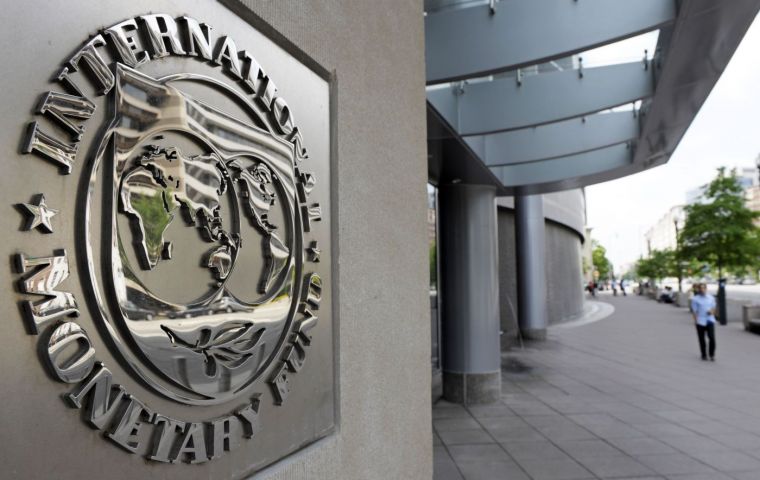MercoPress. South Atlantic News Agency
IMF calls for “policy game changer” in the Euro zone to arrest spread of debt crisis
 “The sense is that not enough has been done to stop the spread”, said the IMF report
“The sense is that not enough has been done to stop the spread”, said the IMF report The IMF called on Thursday for a “policy game changer” in the Euro zone to arrest the spread of the debt crisis it now says is clearly engulfing the entire currency bloc and its smaller neighbours.
An IMF spill-over report that looks at how the economic policies of the so-called systemic five economies - the United States, China, Euro zone, Japan and the United Kingdom - affect each other and the rest of the world said the Euro area crisis was by far the biggest concern weighing on policymakers' minds.
The IMF said it had consulted 35 countries for the report including select number of emerging economies Brazil, Czech Republic, India, South Africa, Turkey, Russia, South Korea, Poland, Mexico and Saudi Arabia.
“Despite progress in the face of constraints, the sense is that not enough has been done to stop the spread of stresses and attenuate fiscal-growth-banking feedback loops,” the IMF said of the Euro zone's policy actions so far.
In a worst-case scenario simulated by the IMF, it found that Euro zone output could be cut by five percentage points if policymakers did not act and the Euro zone crisis worsened.
If the Euro zone crisis intensified, the IMF estimated that the impact to the world's poorest countries would be somewhere between mild to severe, and could push up their external financing needs by some 27 billion dollars by the end of 2013.
But the IMF said the Euro zone was not the only global worry.
Weighing possible spillovers elsewhere, the IMF also said the United States must remove the threat of a so-called “fiscal cliff” in 2013, with 4 trillion dollars worth of expiring tax cuts and automatic government spending reductions next year, and not enough fiscal adjustments over the medium term.
Most analysts believe that Congress will not act until after the congressional and presidential elections in November.
Of China, the IMF said there was a concern that slower investment while necessary to rebalance demand to consumption, would hit trade partners and world prices. A one percentage point cut in Chinese investment growth would have a large impact on its Asian suppliers, while effects on Japan and Germany would also not be trivial, it added.
High public debt in Japan makes it vulnerable to an abrupt shift in market sentiments, while the United Kingdom should take further steps to fortify its financial system and underpin confidence in banks, the IMF said.
Ranjit Teja, the report's lead economist, said emerging economies had complained that easy monetary policy in the United States, Europe and Japan had created a surge in capital inflows, higher commodity prices and raised the risk of asset bubbles.
Teja said the impact of monetary easing measures was not clear-cut but it did not mean that emerging economies have not been affected.




Top Comments
Disclaimer & comment rulesCommenting for this story is now closed.
If you have a Facebook account, become a fan and comment on our Facebook Page!